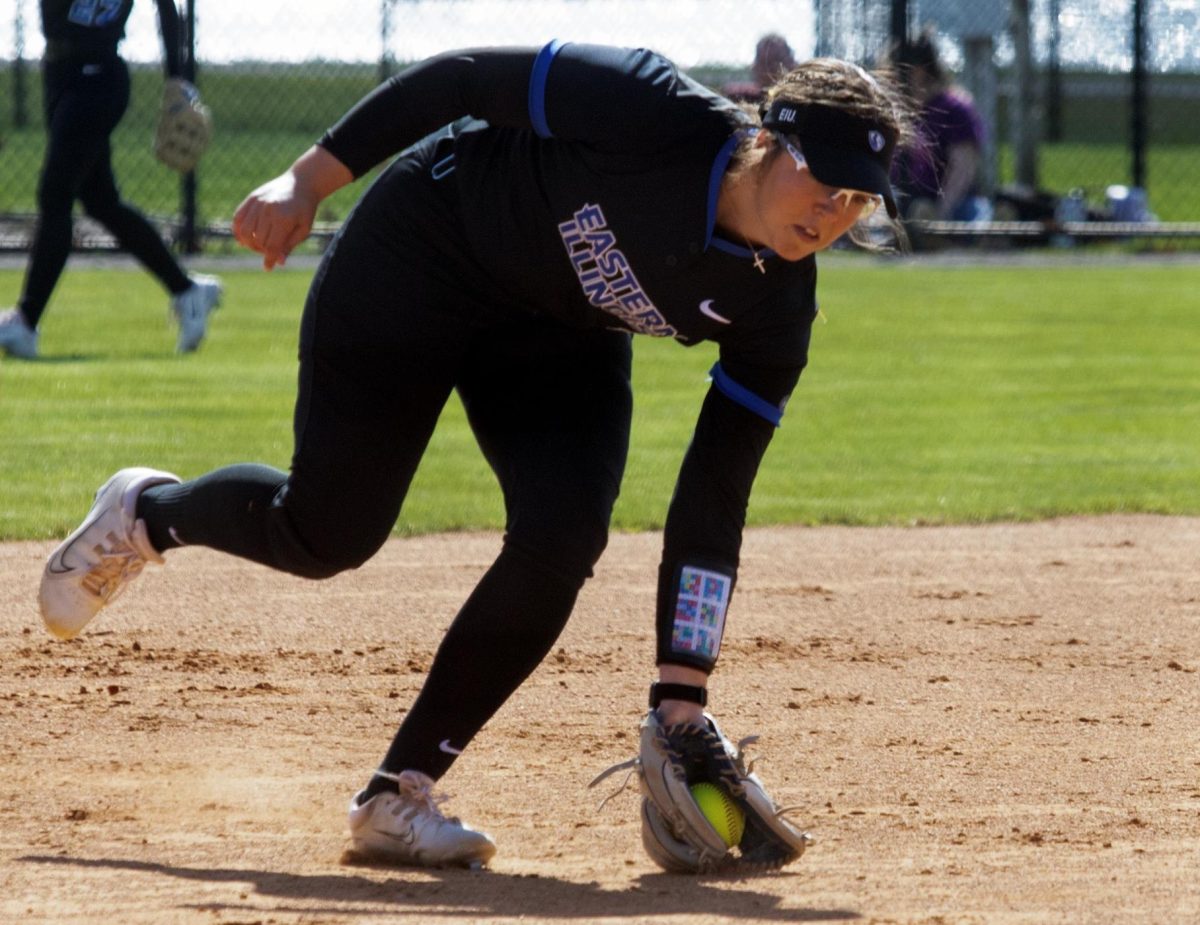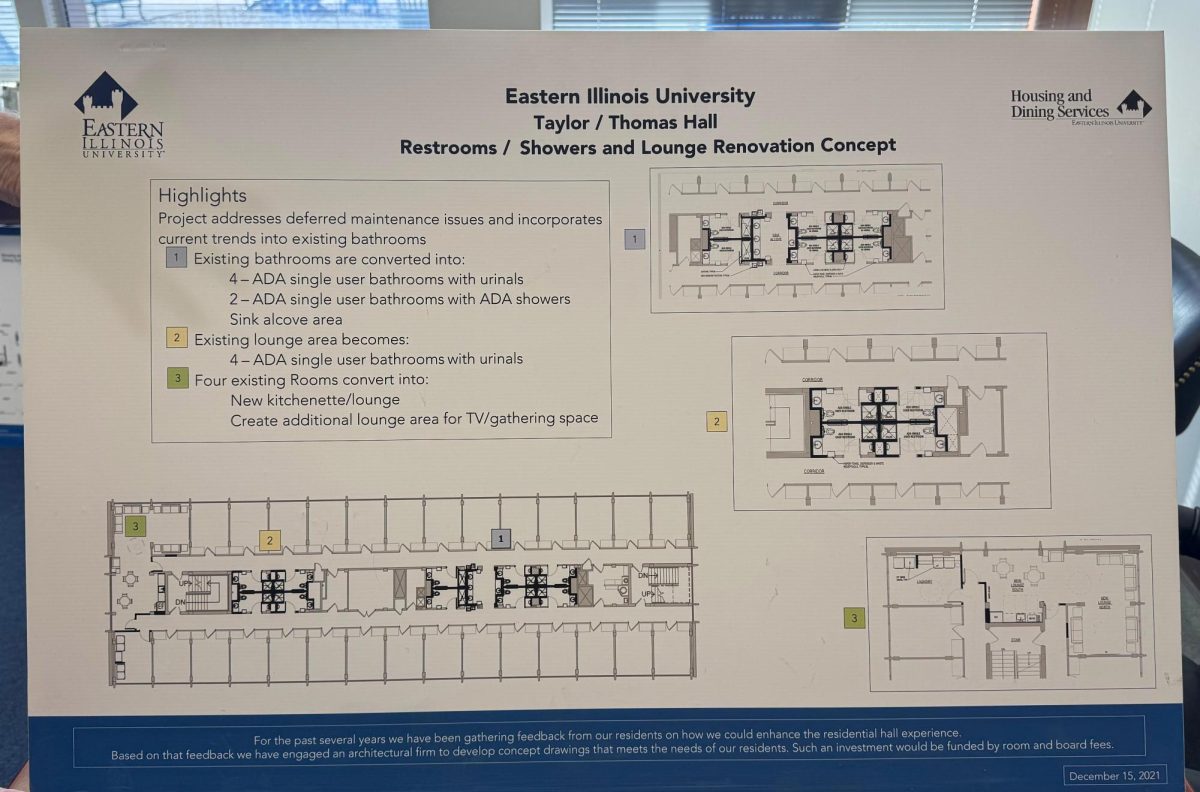Illinois had a record-breaking number of tornadoes in 2024 topping out at 142 by the end of the year breaking the previous record set in 2006 at 125, according to the National Weather Service. This put Illinois in the top five states with the highest recorded number of tornados in 2024 rating 4 out of 5 according to AccuWeather.
Cameron Craig, a professor and climatologist at Eastern Illinois University, emphasized the importance of having a safe space with severe weather, especially tornadoes.
“Know a plan. If you have tornadoes, especially with children, know where to go with the kids. An interior room or basement; an interior room is the best situation,” said Craig.
For students on campus, Craig advised that they should listen to campus warnings. The public should heed warnings as well as get to their shelter, especially if they are in a mobile home, he said.
“Many people believe that people are invincible, and it will not happen to them. I’ve seen both personal and out there situations within the world where people don’t follow the warnings,” Craig said.
There are multiple ways to receive information on current weather events by using a National Oceanic and Atmospheric Administration weather radio, local TV and radio, wireless emergency alerts and weather apps, outdoor sirens, internet sites and updates from friends, family and coworkers.
Models and numerical models are used to predict the weather. Multiple meteorologists come together to read models and get feedback from each other before everything is confirmed, Craig said. The majority of weather data comes from NWS and NOAA, Craig said, and these organizations run off federal funding.
Freshman nursing and biology major Greta Ballinger said she feels pretty safe on campus.
“There are plenty of protocols in place. I remember EIU having everyone move to the basement to keep people safe, and they have multiple drills, so people are aware of what to do,” said Ballinger.
Ballinger recalled a huge snowstorm hit the area while she was working a shift at Sarah Bush Lincoln Hospital.
There was so much snow that many of her colleagues had to stay the night in the building to stay safe. Ballinger was more fortunate, only being delayed a few hours more than normal so roads could be plowed and cleared before she left to go home.
Paige Parmenter, a sophomore and criminal justice major, expressed similar feelings about EIU’s safety regarding weather alerts and drills. She remembers her own experience with severe weather during the storms a few weeks ago.
“I was in my room a few weeks ago during the storms. The rain was like a sheet coming down outside. I had to stay away from my windows,” Parmenter said.
Parmenter said she stays safe during severe weather by making sure she isn’t driving. If she must go somewhere or is caught in a storm, she will turn on her headlights and drive 10 miles below the limit so that way she is safer.
The NWS webpage gives a few safety tips for severe weather and tornadoes.
The National Oceanic and Atmospheric Administration advises to know the difference between a tornado watch, warning and emergency.
Tornado watches advise that weather conditions are favorable for tornadoes to form. During this time, people should be prepared for tornadoes while under a tornado watch.
A tornado warning means that a tornado has been spotted or indicated by a weather radar. It could be confirmed on the ground or expected to happen soon. During tornado warnings people should take shelter immediately in the safest location possible.
A tornado emergency is a rare warning that is given in the case that there is a severe threat to human life and catastrophic damage due to a confirmed violent tornado. Shelter should be taken immediately during a tornado emergency.
Another way to prepare is by making a disaster supply kit for when severe weather hits. This kit can have food, water, a battery powered weather radio, flashlights and batteries, cellphone with a charger or spare battery pack, first aid kit, pair of shoes, list of emergency contacts and a whistle or something loud to signal for help.
Michelle Doty can be reached at 581-2812 or at mrdoty@eiu.edu.















![[Thumbnail Edition] Senior Foward Macy McGlone, getsw the ball and gets the point during the first half of the game aginst Western Illinois University,, Eastern Illinois University Lost to Western Illinois University Thursday March 6 20205, 78-75 EIU lost making it the end of their season](https://www.dailyeasternnews.com/wp-content/uploads/2025/03/WBB_OVC_03_O-1-e1743361637111-1200x614.jpg)














![[thumbnail edition] Assistant Coach of the Linebackers, Rodman Noel talking to the linebackers about their positions at O'Brien Field on the Eastern Illinois University campus, Charleston Ill.](https://www.dailyeasternnews.com/wp-content/uploads/2025/04/FB_24_O-1-e1744671213207-1200x609.jpg)
![[THUMBNAIL EDITION] (From left to right) Head football coach Chris Wilkerson works with his son student assistant coach Peyton Wilkerson at football practice at O'Brien Field on the Eastern Illinois University campus on Thursday.](https://www.dailyeasternnews.com/wp-content/uploads/2025/04/FB_25_O-1-e1744234837107-1200x596.jpg)












































![[Thumbnail Edition] Eastern Illinois University President Jay Gatrell welcoming staff and faculty to the Spring 2025 Plan 2028 update in Doudna Fine Arts Center on March 26, 2025.](https://www.dailyeasternnews.com/wp-content/uploads/2025/03/P2028_01_O-1-e1743206673730-1200x560.jpg)


